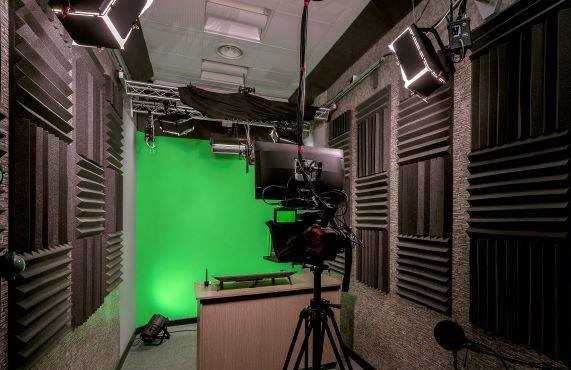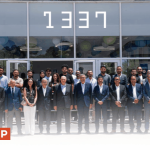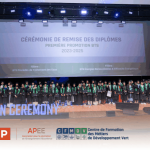Six new centres of competence in digital education in African Universities
Six new centres of competence in digital education in African Universities
As part of the joint EPFL-UM6P initiative, "Excellence in Africa", the Centre EXAF-EPFL announced the first six successful candidates to host future Centres of Competence in Digital Education (C-CoDE). The second stage of the call for applications for the creation of Centres of Competence in Digital Education (CoDE) of the Excellence in Africa initiative is now closed. The 20 shortlisted applications were evaluated by experts from the Association of African Universities (AAU), EPFL and UM6P.

As it was a highly competitive call, and due to the limited number of institutions which can take part in the programme, the Excellence in Africa Steering Committee set high selection standards.
On the basis of the quality and relevance of the projects, the following six African universities were selected:
- The Nelson Mandela African Institution of Science and Technology, Arusha, Tanzania
- Moi University, Moi, Kenya
- Kabale University, Kabale, Uganda
- University of Abuja, Abuja, Nigeria
- École Supérieure Multinationale des Télécommunications, Dakar, Senegal
- Université Nangui Abrogoua, Abidjan, Ivory Coast The universities’ transition to digital education, including the sustainable integration of digital tools and technologies as well as the adoption of new pedagogical approaches, requires upskilling. The creation of the CCoDEs, which combine these pedagogical and technological competences, will accompany these universities in their digital transition and ultimately have a broader impact at national and regional level.
In 2021 and 2022, the project will develop "hardware" and "software". A studio with multimedia equipment and IT infrastructure necessary to produce online courses (MOOC - Massive Open Online courses) will be constructed. Technicians from each university will then be trained to operate the production studios. Training in digital education will also be provided to resident experts in instructional design as well as a few dozen professors .
This training in digital education will be delivered using MOOCs and personalised remote coaching by digital education experts, using a wide range of digital technologies. This training programme will put theory into practice by focusing on the transformation of existing face-to-face courses into online ones. It will enable the assimilation of pedagogical tools and practices to teach using digital technology.
Finally, it will develop courses and make them available to the entire community of learners. Thus, learning strategies, lesson plans and examples of curriculum will be reviewed from a digital perspective. The implementation of the C-CoDEs, together with the trainings, will contribute to the sustainable integration of digital education and technologies in the instruction provided at each partner university. It should ultimately lead to the pooling of teaching between the universities. For reminder, the EXAF Centre received 44 applications in response to the first phase of the call for applications in summer 2020.
This considerable number of candidates, from universities all over Africa, highlighted that digital education is considered part of strategic development plans to enhance the quality of education in STEM (Sciences, Technology, Engineering and Mathematics) disciplines.
More about Excellence in Africa: https://bit.ly/3qzEzGM
Epfl : http://bit.ly/3p0U2iR
|um6_wysiwyg|
Six new centres of competence in digital education in African Universities
As part of the joint EPFL-UM6P initiative, "Excellence in Africa", the Centre EXAF-EPFL announced the first six successful candidates to host future Centres of Competence in Digital Education (C-CoDE). The second stage of the call for applications for the creation of Centres of Competence in Digital Education (CoDE) of the Excellence in Africa initiative is now closed. The 20 shortlisted applications were evaluated by experts from the Association of African Universities (AAU), EPFL and UM6P.

As it was a highly competitive call, and due to the limited number of institutions which can take part in the programme, the Excellence in Africa Steering Committee set high selection standards.
On the basis of the quality and relevance of the projects, the following six African universities were selected:
- The Nelson Mandela African Institution of Science and Technology, Arusha, Tanzania
- Moi University, Moi, Kenya
- Kabale University, Kabale, Uganda
- University of Abuja, Abuja, Nigeria
- École Supérieure Multinationale des Télécommunications, Dakar, Senegal
- Université Nangui Abrogoua, Abidjan, Ivory Coast The universities’ transition to digital education, including the sustainable integration of digital tools and technologies as well as the adoption of new pedagogical approaches, requires upskilling. The creation of the CCoDEs, which combine these pedagogical and technological competences, will accompany these universities in their digital transition and ultimately have a broader impact at national and regional level.
In 2021 and 2022, the project will develop "hardware" and "software". A studio with multimedia equipment and IT infrastructure necessary to produce online courses (MOOC - Massive Open Online courses) will be constructed. Technicians from each university will then be trained to operate the production studios. Training in digital education will also be provided to resident experts in instructional design as well as a few dozen professors .
This training in digital education will be delivered using MOOCs and personalised remote coaching by digital education experts, using a wide range of digital technologies. This training programme will put theory into practice by focusing on the transformation of existing face-to-face courses into online ones. It will enable the assimilation of pedagogical tools and practices to teach using digital technology.
Finally, it will develop courses and make them available to the entire community of learners. Thus, learning strategies, lesson plans and examples of curriculum will be reviewed from a digital perspective. The implementation of the C-CoDEs, together with the trainings, will contribute to the sustainable integration of digital education and technologies in the instruction provided at each partner university. It should ultimately lead to the pooling of teaching between the universities. For reminder, the EXAF Centre received 44 applications in response to the first phase of the call for applications in summer 2020.
This considerable number of candidates, from universities all over Africa, highlighted that digital education is considered part of strategic development plans to enhance the quality of education in STEM (Sciences, Technology, Engineering and Mathematics) disciplines.
More about Excellence in Africa: https://bit.ly/3qzEzGM
Epfl : http://bit.ly/3p0U2iR
_1.png)


